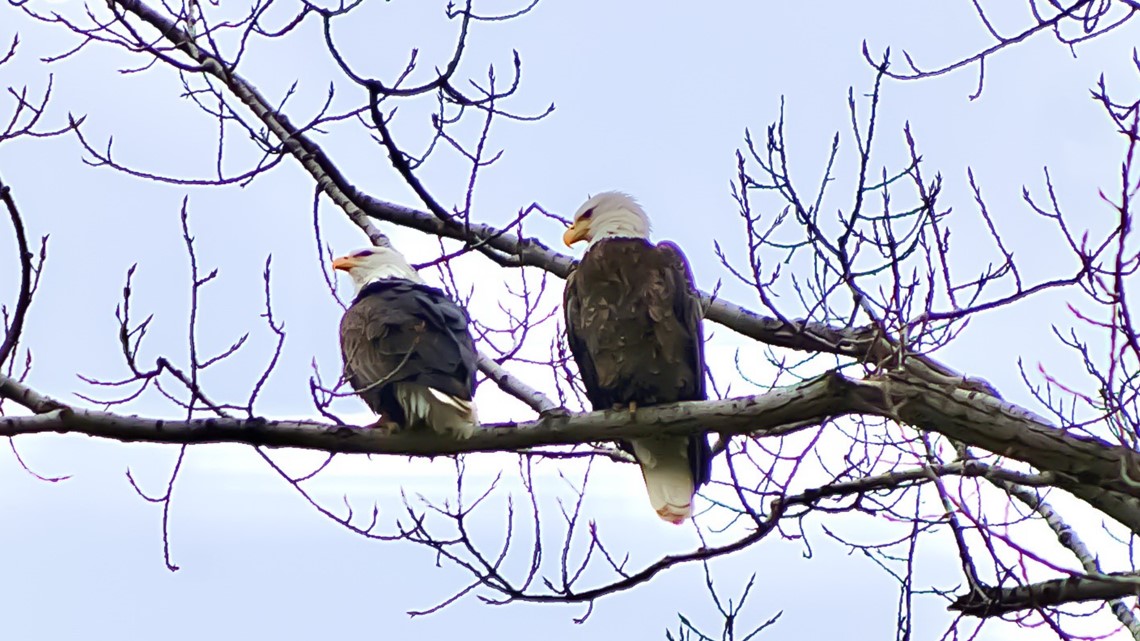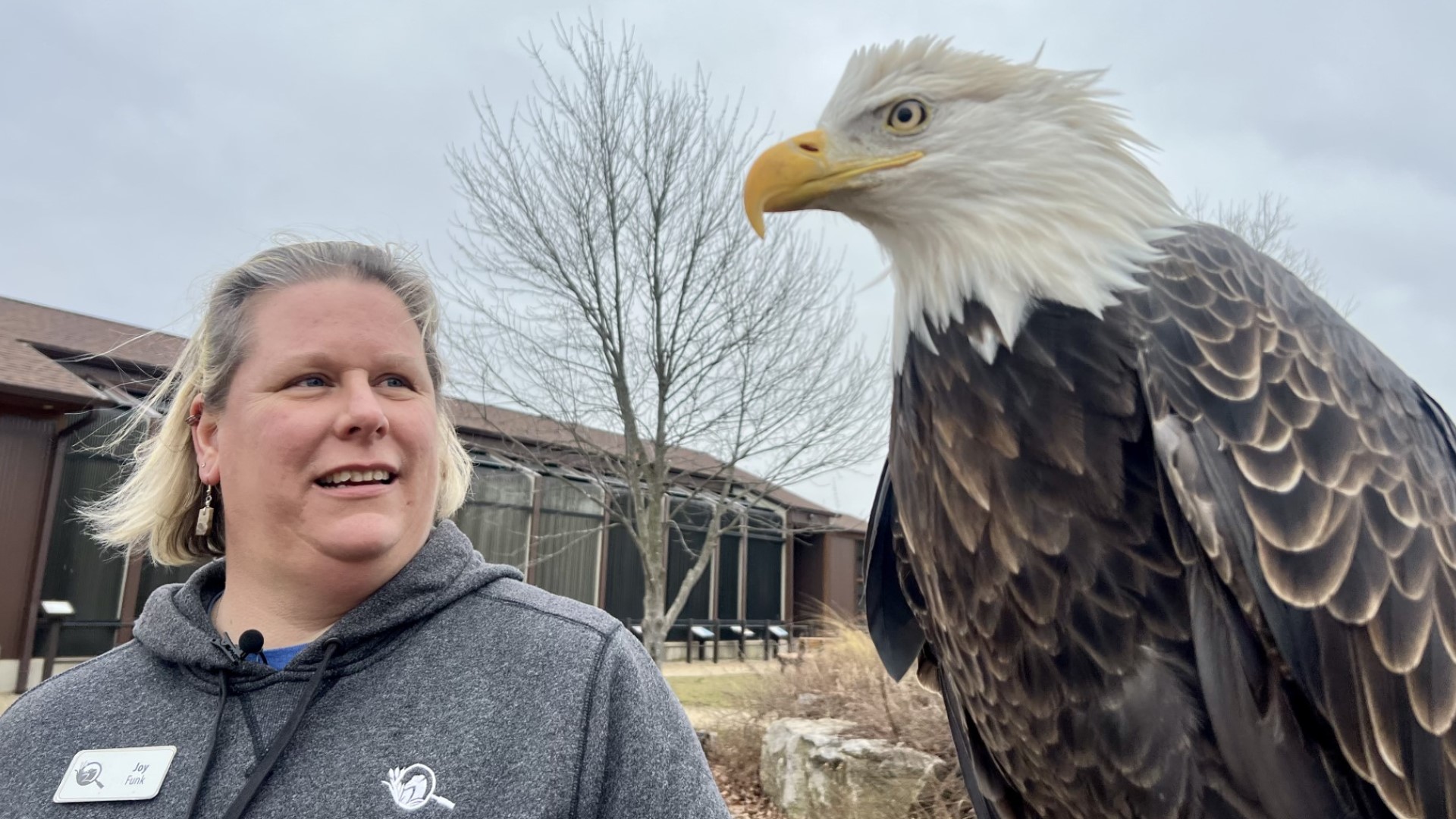HOLLAND, Mich. — On a cold January afternoon, Joy Funk emerges from the Outdoor Discovery Center's De Witt Birds of Prey Center with a special guest on her arms — a bald eagle. Weighing in at eight pounds, this male is a crowd-pleaser.
He also happens to be the most difficult bird Funk, the center's vice president of programming, has had the pleasure of working with.
"I trained him, so I have a love-hate relationship with him, I would say," Funk said with a smile.
"He was definitely stubborn. I would say bald eagles are really stubborn to train. Bald eagles are known to be pretty feisty."
Bald eagles are also creatures beloved by many in North America. They're the national bird of the United States. Sacred to Indigenous people, bald eagles are, in the words of the Citizen Potawatomi Nation "revered as warriors and messengers."
Despite all the glory surrounding the species, we nearly lost them. They became rare in the 1900s because they were hunted, poisoned, and affected by pesticides.
"In the 70s, scientists started to realize that they were seeing a lot of adult bald eagles, but no young bald eagles. They discovered that their egg shells weren't able to be incubated because they would crack under the weight of the bird, and they tied that to a pesticide called DDT," Funk said.
"So finally, they banned DDT, which is great, and the Endangered Species Act was passed in 1973. In 1971 there were 400 Bald Eagle pairs in the whole United States. Now there's over 10,000 in the contiguous United States, and Alaska has a ton of eagles."


The rebound of the bald eagle population is one of the most talked about conservation success stories in America. But eagles and other raptor species still face danger in the wild, and every day people can take steps to help them.
Don't use rodenticide outdoors
"Sometimes we have traps with poison in them to poison rodents that we don't want, like rats and mice and things like that," Funk said.
"But when those rodents go into the trap and eat some of those poisons, they come out and then a raptor will often come and eat them before they die from the poison. And then that means the raptor will die from the poison. That's the number one threat to eagles now."
Don't use lead ammo
Eagles are most known for their love for fish, but that's not their only source of food. Like vultures, eagles are also known to eat carrion — the decaying flesh of dead animals. In some instances, hunters using lead ammunition have shot animals that eagles end up feasting on. Funk says eagles can get lead poisoning "pretty easily."
Keep your local waterways clean
Because eagles live mostly near bodies of water and have an appetite for fish, it's important to keep your local waterways healthy. Funk says you can do that by joining a greenway in your area and participating in clean-ups.
"If you own land along the water, you want to use best management practices to be able to make sure that water is staying clean, and that the habitat is good for the different animals that come there," she said.
"And honestly, just taking a walk outside. If you're walking in parks in Grand Rapids, along the river, people count how many people go to those parks, and then they get funded more. So just going for a walk outside even counts."
Learn about nature and help your kids learn, too
The Outdoor Discovery Center exists to educate people about nature. Its trails are open to anyone from dawn until dusk and those trails are free to enjoy. The center hosts field trips and gets people of all ages interested in nature.
The center has two bald eagles, a golden eagle and several other raptors that would not be able to survive in the wild, mostly because of injuries. Those birds serve as wildlife ambassadors to help foster a love for conservation.
"If people aren't that interested in the outdoors, animals are usually the hook. We want people to come here to see them and then to develop a relationship with the animals. Then if they become conservationists from that, that's great," Funk said.
"When you're six and you come and visit our bald eagles all the time, then maybe when you're older, you will care more about eagle habitat. That's really what we're aiming for, is for people to realize these wild animals need our help to be able to survive in the wild."
The Outdoor Discovery Center is on 56th Street just south of the Holland city limits. If you'd like to learn more about their programs, you can visit their website or follow their Facebook page.
►Make it easy to keep up to date with more stories like this. Download the 13 ON YOUR SIDE app now.
Have a news tip? Email news@13onyourside.com, visit our Facebook page or Twitter. Subscribe to our YouTube channel.
Watch 13 ON YOUR SIDE for free on Roku, Amazon Fire TV Stick, Apple TV and on your phone.

